Historically, Dalhousie has worked in isolation even though its pristine landscape is littered with garbage. Whereas In Shimla, 18 persons were booked under the solid waste management rules for dumping their household garbage in the city; and fined under the “name and shame” initiative taken by the Shimla Municipal Corporation (SMC) to make the city clean and garbage-free. Also, some residents accused the SMC’s garbage collectors of dumping the waste on the hillsides after sweeping the streets in many wards of the city.
- Himachal Pradesh has 50 ULBs and 6 Cantonment Boards. Except for the Municipal Corporation of Shimla, all the ULBs are managed by the State Department of Urban Development.
In the H. P capital, financially, the waste collection system is self-sustaining as users are charged a fee according to their category; the community is thus willing to participate in the door-to-door waste collection. CCTV cameras are in position at major “garbage hot spots”. There are issues associated with waste segregation at the source. The use of yellow & Green bins by the households for non-biodegradable waste and bio-degradable waste, respectively, has just not worked. Thus, currently, even though the collection efficiency is high, the waste collected is unsegregated.
- The increase in waste generation is a by-product of economic development. For Dalhousie as well; the quantum of waste generated is only expected to increase, which will assume a crisis without much coordination resulting in little treatment of the collected MSW and unscientific disposal of waste at dumpsites.
-
- The practice of door-to-door garbage collection, initiated by the previous President of M C Dalhousie, has gone with the wind.
- The former Minister says “The municipal body cannot shirk its responsibility of clearing the municipal waste lying unattended in different quarters of the town. The administration needs to take a hard decision and set an example through strict implementation.”
- As per MSW Rules, 2015, it is the responsibility of the State. The overall responsibility is on the Secretary-in charge of the Department of Urban Development of the state. The Deputy Commissioner of the concerned district has the same responsibility within the territorial limits.
-
- The National Urban Sanitation Policy of 2008 stipulates that the municipal waste management strategies must be reflected at the state level in the State Sanitation Strategy (SSS) and the City Sanitation Plan (CSP). In 2014 India inaugurated the Swachh Bharat Mission, a five-year nationwide cleanup effort. The National consolidated effort for systematic and total waste management came into common consciousness based on citizen activism and municipal efforts to set up sustainable systems.
- All the rules merged into Solid Waste Management Rules, 2016; compliance is variable and limited.
- Waste management in India falls under the purview of the Union Ministry of Environment, Forests, and Climate Change (MoEF&CC). The rules are based on the principles of “sustainable development”, “precaution” and “polluter pays”.
- Waste segregation at the source is mandatory. Municipalities and urban local bodies have been directed to include informal waste pickers and rag pickers in their waste management process. This will ensure that all kinds of non-biodegradable waste are collected, the recyclable waste will be sold and the remaining waste can be passed on to the RDF (Refuse Derived Fuel) plants.
- The new schemes like SMART cities and AMRUT (Atal Mission for Rejuvenation and Urban Transformation) are likely to bring in more funding for towns in hill areas. ‘urban renewal’ implies the redevelopment of urban areas to ensure the growth of infrastructure, promotion of tourism and better quality of life.
- The focus is to be on efficiency in urban infrastructure and service delivery mechanisms, community participation, and accountability of ULBs towards citizens.
- It is necessary to tackle this problem systematically by going into all aspects of “Solid Waste Management” (SWM) and devising a cost-effective system that may ensure an adequate level of SWM services to all classes of citizens along with collection, segregation, transportation, and disposal of waste in an environmentally acceptable manner.
- The important legislative development in waste management in H.P. is the ban on the use of plastic bags. A proposal to ban 26 items that use plastic as packaging is also on its way.
- Being a most favoured tourist destination; Dalhousie, due to its massive floating population, shows steep variation in solid waste during different seasons. Adjoining Rural surroundings became Open Defecation Free (ODF) in October 2016. Thereafter, the focus under Swachh Bharat Mission shifted to ODF sustainability and Solid and Liquid Waste Management (SLWM).
- Waste management is important as it saves the environment from the toxic effects of inorganic and biodegradable elements present in the waste. Mismanagement can cause water contamination, soil erosion, and air contamination. Waste can be recycled if collected and managed efficiently.
I wonder if the municipality of Dalhousie grows into a smart city that uses information and communication technologies (ICT) to increase operational efficiency, share information with the public and improve both the quality of government services and citizen welfare.
Here, people have consciousness of honesty and cleanliness.* An efficient garbage disposal system should be evolved by the MC.
Let us all pledge to welcome the unstoppable practice of segregating our waste to keep the beauty of Dalhousie constant forever!#
************************************************************************
*People of Dalhousie https://hillpost.in/2017/11/people-of-dalhousie/109693/
#Hilldaari · Nestlé India
Prof. (Er.) Chander P Mahajan is an art critic & a free lance journalist. The Environmentalist stays in Shimla and Dalhousie, Himachal Pradesh, India.


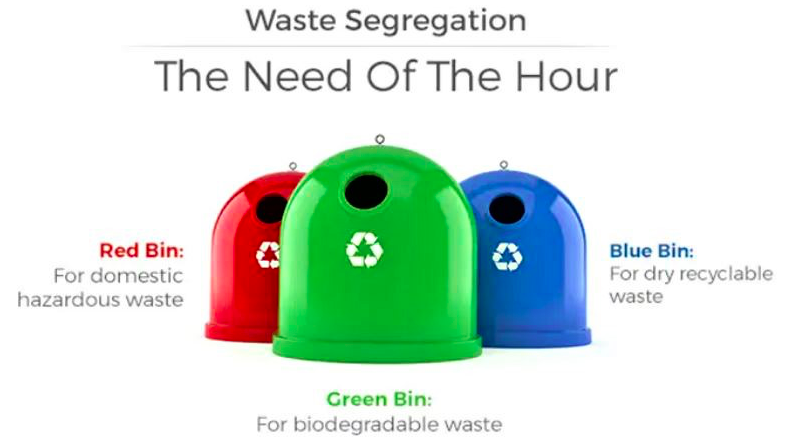
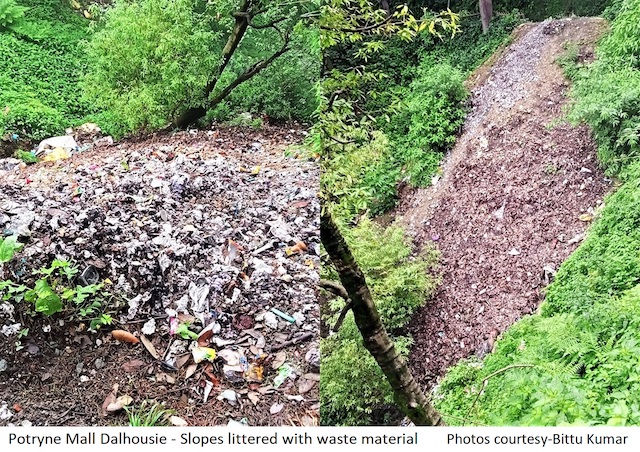
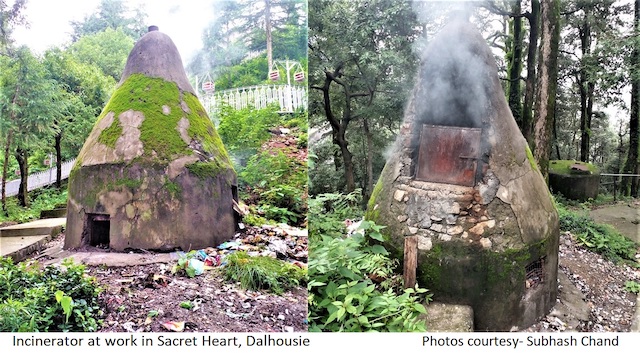
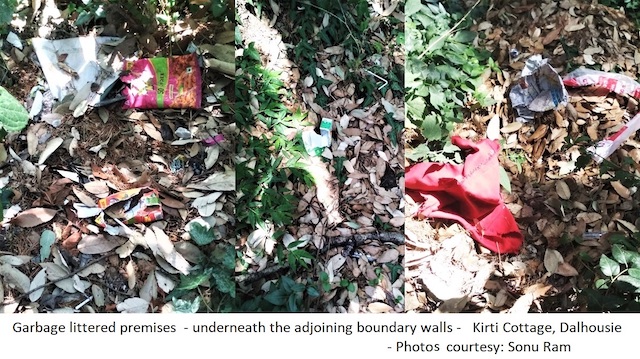
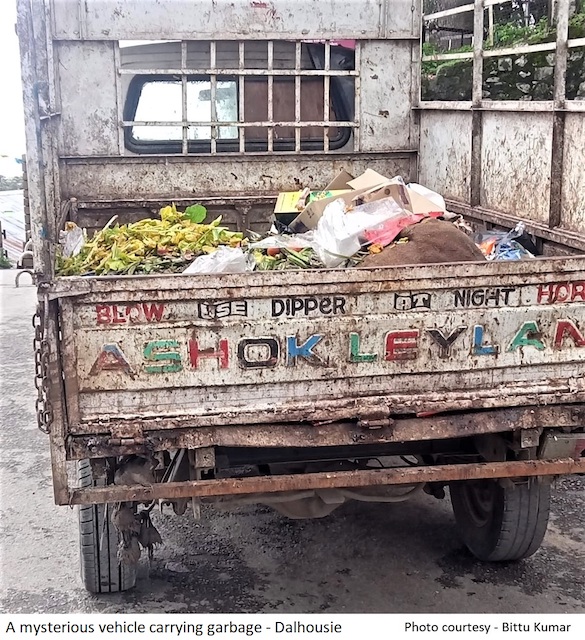

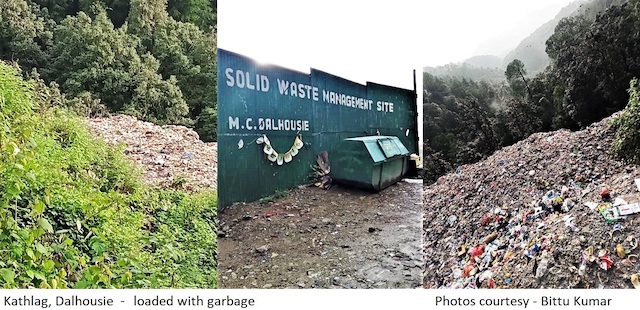


Even though, the government has a great responsibility towards cleanliness , the role that the population plays is inevitable. If the population is made sensitive towards how grave the situation is, I think we would have a better response to it . If we start with the youngest, schools should be adviced to involve in their curriculum, from class 1st and onwards , a cleanliness and hygiene class, to inculcate a consciousness towards clean surroundings.